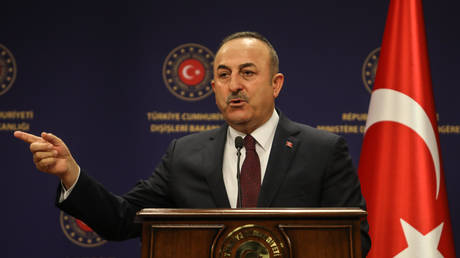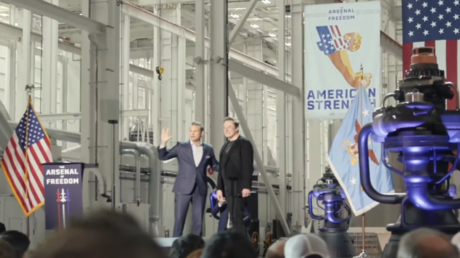
Turkish foreign minister Mevlut Cavusoglu says it is “unrealistic”
The possibility of Turkey joining anti-Russia sanctions is “unrealistic,” Turkey’s Foreign Ministry chief, Mevlut Cavusoglu, said in an interview with local news channel NTV on Thursday. He noted however, that Ankara would be forced to follow sanctions if they’re approved by the United Nations.
“Turkey abides by international law, we will continue to pursue a balanced foreign policy. But if the UN approves sanctions against Russia, Turkey will be forced to follow them,” said Cavusoglu.
“But in terms of joining sanctions imposed by individual countries, I think these countries understand themselves that, given Turkey’s intermediary position, it is unrealistic,” he added.
He went on to say that Turkey’s Western partners often question Ankara’s position, stating that “They often ask “will you close the sky?” You need to understand that Turkey holds an intermediary position and is committed to stabilizing the situation.”
Since Russia launched its offensive in Ukraine on February 24, Turkey has tried to adhere to a neutral position, urging peaceful dialogue between Moscow and Kiev, and offering to act as a mediator in negotiations between the two sides. Erdogan has warned against isolating Russia and has refused to impose economic sanctions, unlike other NATO bloc members, stressing the importance of keeping diplomatic channels open with both Moscow and Kiev.
Turkey has also officially refused to supply Ukraine with weapons, including its Russian-made S-400 anti-aircraft missile systems, however some private Turkish arms companies have continued to support Kiev in this conflict, namely Baykar Defense – the manufacturer of the Bayraktar TB2 drones, which have proven to be very effective in combat zones around the world.
Earlier this month, Kremlin spokesperson Dmitry Peskov commented that Turkey, given it size and regional importance, is in a unique position that gives it the luxury of defending its interests despite being a member of NATO, noting that although Moscow and Ankara have had their disagreements and misunderstandings over the years, partnership based on mutual benefits still prevails.
Peskov added that Turkish President Recep Tayip Erdogan finds it in himself to “defend and pursue his interests” while not joining the “mainstream” like other European nations, which have imposed sweeping sanctions on Moscow since the start of the conflict in Ukraine
On Thursday, The Kremlin spokesperson acknowledged that these sanctions are indeed quite serious. He noted however that Russia has been preparing for them for some time and that these sanctions will require some analysis and coordination between ministries in order to develop countermeasures that will serve the interests of Russia.
Russia attacked its neighbor in late February, following Ukraine’s failure to implement the terms of the Minsk agreements, signed in 2014, and Moscow’s eventual recognition of the Donbass republics of Donetsk and Lugansk. The German and French brokered Minsk Protocols were designed to give the breakaway regions special status within the Ukrainian state.
Russia has since demanded that Ukraine officially declare itself a neutral country that will never join the US-led NATO military bloc. Kiev insists the Russian offensive was completely unprovoked and has denied claims it was planning to retake the two republics by force.
The West condemned the attack and has been constantly increasing sanctions pressure on Moscow. Russia has been responding with counter-measures.




